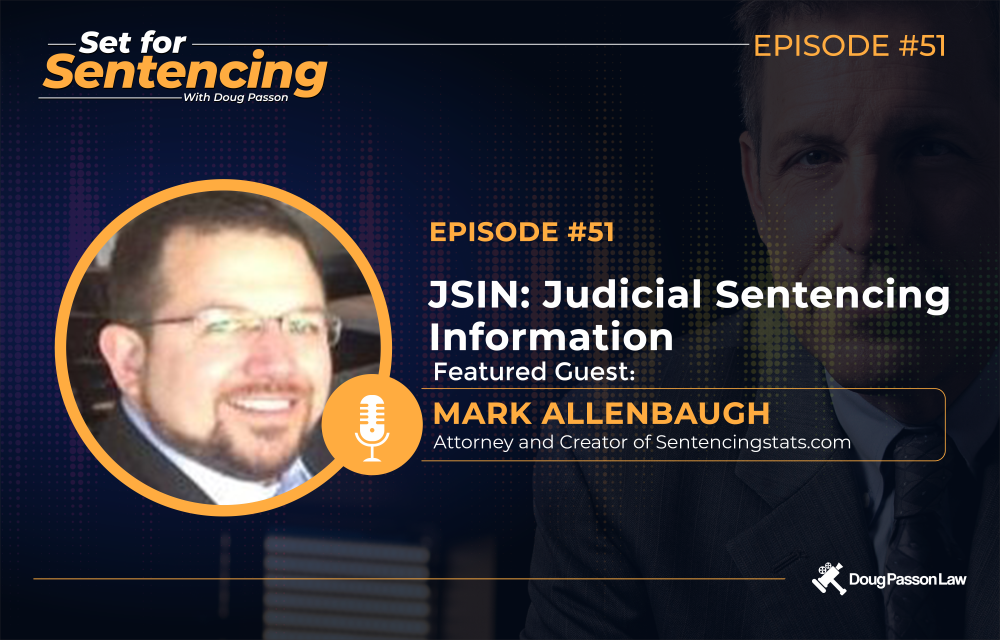So today, we celebrate the death of guideline departures, lament the death of due process in immigration, and worry for the future of this democracy.
Seismic Shift: Big Changes to the Sentencing Guidelines & the Country


So today, we celebrate the death of guideline departures, lament the death of due process in immigration, and worry for the future of this democracy.
SentencingStats.com recently completed a comprehensive analysis of the sentencing outcomes for defendants involved in the January 6th incident at the U.S. Capitol. This study examines 934 defendants who were convicted and sentenced through August 12, 2024. The findings shed light on significant sentencing disparities arising from the exercise of judicial and prosecutorial discretion, highlighting critical gaps in the current legal framework.

On November 1, 2024, several amendments to the United States Sentencing Guidelines took effect. Some of these changes are significant, offering advantages to the defense, while others are less beneficial.
However, ultimately, this process amounts to nothing more than “Kabuki Theatre,” meaning the tortured guideline applications become merely performative, because 18 U.S.C. § 3553, enables discerning judges to overlook the sentencing recommendations provided by the guidelines.

Bloomberg Law asked our President and Chief Research Officer, Mark Allenbaugh, to weigh in on a significant legal challenge to the U.S. Sentencing Commission’s policy on compassionate release. This policy allows courts to consider nonretroactive changes in law when evaluating requests for sentence reductions, a critical tool for addressing outdated sentences. However, the U.S. Department of Justice (DOJ) argues that this policy exceeds the Commission’s statutory authority, claiming it effectively makes nonretroactive laws retroactive.

New Guidance on Guilty Plea Withdrawals Long Past due – Law 360

Washington, D.C. – In a major victory for sentencing reform advocates, the U.S. Sentencing Commission has amended the U.S. Sentencing Guidelines to preclude the consideration of acquitted conduct at sentencing. This amendment, which goes into effect on August 1, 2024, marks a significant step towards a more constitutional and equitable sentencing system.

The US Sentencing Commission created “JSIN” (sounds like “Jason”) as a resource for Judges who want to understand how defendants are really being sentenced under the guidelines. And, currently thirty-one federal jurisdictions are now incorporating JSIN data into the pre-sentence report. But, are the stats accurate? Could these numbers help or harm defendants? IN THIS

In this video, we provide a comprehensive statistical analysis of Paul Manafort’s 47-Month Sentence imposed on March 7, 2019 in the Eastern District of Virginia by Judge Ellis. As we discuss, Mr. Manafort received the largest downward variance ever for anyone sentenced under 2S1.3. It also is nearly unprecedented for anyone sentenced with the same
We review the DC and EDVA convictions of Paul Manafort as well as sentencing relevant data from the U.S. Sentencing Commission. We predict that Mr. Manafort will receive a 10-year sentence in his DC case, which will be ordered to run fully concurrently with his sentence in the Eastern District of Virginia. For the Eastern

Today marks 30 years of federal sentencing under the U.S. Sentencing Guidelines. The Guidelines were intended to promote uniformity and certainty in sentencing while providing punishment proportional to the offense of conviction. Since then, over 1.7 million people have been sentenced to over 6.5 million YEARS of prison, which is to say nothing of the